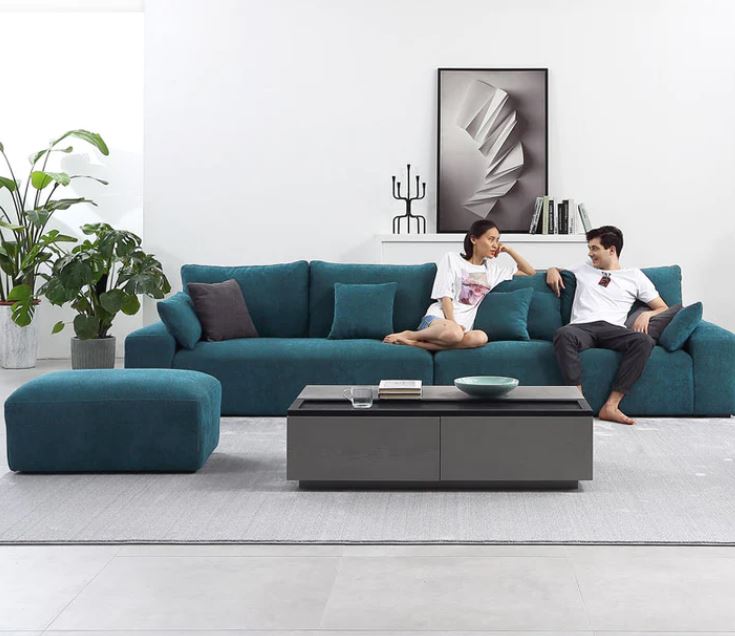In this article “Choose comfort zone over constant resilience in personal life” I will write why having and maintaining a positive and balanced life and attitude is more important than constantly pushing ourselves out of the comforzone and over our limits.
In my previous article AI Magic: Transforming Businesses into Innovation Powerhouses, I was writing a lot about business resilience, and how important that businesses need to be prepared for everything surprising and need to trying to avoid potentially harmful results of crises and economic downfalls; and how automation, AI and ML solutions can help in this.
However, some people might think they have to follow and be constantly resilient in their personal life too.
Their thinking can’t be worse than this and I will write a proper explanation regarding this. Even for personal development, physical and mental too we need times when we are balanced, harmonized and in a happy state and not living constantly in stress and exposed to certain factors which are out of our comfort zones.
Comfort zone
The “comfort zone” is a psychological state where individuals feel safe, familiar, and at ease with their current circumstances. We usually feel this in our own home where we create comfort for ourselves and the family.
In the following part we give some ideas how to create the most comfortable environment for yourself to feel good.
Creating comfort zone
Creating a comfortable and cozy atmosphere at home involves considering various aspects of your living space. Here are some tips to help you establish a comfortable environment:
Choose Comfortable Furniture
Invest in furniture that is both stylish and comfortable.
Choose sofas and chairs with plush cushions and consider adding throw pillows and blankets for extra coziness.
🌟 Exclusive Furniture Deals Just for You! 🌟
AALTO BOUTIQUE AIR LEATHER PLUME SOFA
25Home: Pre Christmas, Up to 48% Off, Code: XMAS
SALO BROWN CLASSIC AIR LEATHER PAD-SOFA
WIDE ARMREST JADE GREEN SOFA & OTTOMAN SOFA
(This article contains affiliate link. Please see Disclosure Policy regarding the links. Thank you.)
Soft Lighting
Opt for soft, warm lighting instead of harsh, bright lights. Use table lamps, floor lamps, or string lights to create a relaxed and inviting atmosphere.
Personalize Your Space
Decorate your home with personal items, such as photos, artwork, or sentimental objects. This will make your space feel uniquely yours and contribute to a sense of comfort.
Use Warm Colors
Choose warm and neutral colors for your walls and furnishings. Warm colors like beige, soft greens, or calming blues can create a soothing ambiance.
Create a Relaxation Corner
Designate a specific area for relaxation.
This could be a reading nook with a comfortable chair and good lighting or a cozy corner with cushions and blankets.

Limitations
While it provides a sense of security, staying within the comfort zone according to several motivational speakers and psychologists can
- limit personal growth and
- hinder the pursuit of new experiences.
Stepping outside of this zone, however, often leads to opportunities for
- learning,
- development, and a
- broader understanding of oneself and the world.
That is for example when you start to travel to explore different countries, if you are doing this once of twice nice, but who are constantly doing e.g.: digital nomads, frequent flyers due to work can feel constant burnout, stress and exhaustion.
Resilience
Resilience is the capacity to bounce back from adversity, challenges, or setbacks with a positive mindset and adaptability.
This usually involves
- developing coping mechanisms,
- emotional strength, and
- the ability to persevere in the face of difficulties.
Cultivating resilience is essential for navigating life’s uncertainties and emerging stronger from difficult situations from time to time, but not all the time.
Travel
Travel can be a powerful tool for building resilience, as it exposes individuals to new experiences, challenges, and perspectives. Meanwhile you are travelling you need different skills which will help you in life later on.
Here are ways in which travel can contribute to build resilience:
- Cultural Exposure
- Problem-Solving Skills
- Adaptability and Flexibility
- Stepping Out of Comfort Zones
- Building Confidence
This article contains affiliate link. Please see Disclosure Policy regarding the links. Thank you.
- Coping with Uncertainty
- Forming Social Connections
- Embracing Change
- Mindfulness and Reflection
- Appreciation for Diversity

Self-understanding
While resilience and stepping out of one’s comfort zone are generally positive traits that promote personal development, there can be potential harm in adopting these behaviors excessively or inappropriately.
Pushing out of comfort zone
Constantly pushing oneself beyond limits can lead to
- burnout,
- stress,
- mental fatigue.
Discouragement
Overemphasis on resilience can discourage individuals from
- acknowledging and a
- ddressing their genuine emotions and needs,
potentially resulting in long-term negative effects on mental health.
Self-knowledge
It’s essential to
- be in the flow,

- know when to rest,
- strike a work-life balance,
- know what makes you happy and do more often,
- recognizing when it’s appropriate to be resilient and venture outside one’s comfort zone,
- understanding the importance of self-care and
- acknowledging personal limits.
Personal limits
Boundaries
Personal limits serve as crucial boundaries that define an individual’s
- emotional,
- mental, and
- physical capacity to handle various aspects of life.
This means some people do not like to constantly developing themselves and being in a rat race, not just the daily 9 to 5, but longer working hours, travelling for work hours and living in very uncomfortable situations without human contact or without their old habits (what you usually not able to maintain in new environments).
Limits
Respecting and recognizing personal limits is essential for
- maintaining overall well-being and
- preventing burnout.
Don’t do what scares you and things like this all the time is not comfortable and not good for any of us. Only do it if you like this type of life and if you really need these new experiences.
Connections and Relationships
Knowing the other person personal limits important in every connection and relationships of our life:
- understanding when to say no,
- setting healthy boundaries
empowers individuals to prioritize self-care and navigate life with a balanced approach.
Tech Dilemma: The Hidden Pitfalls for Comfort-Seekers in the Ever-Changing Landscape of Tech Jobs
Continuous learning and adaption
In the fast-paced world of technology, job roles often demand continuous learning and adaptation, pushing individuals outside their comfort zones.
What an AI can do and you can automate with it, you can not usually do with people, because they are humans and burn out, even if some manager not realizing for this little, but important fact. That is why a lot of people prioritize more and more work culture, well-being and recreation over other less important things.
Fast Changes
Rapid advancements
Tech jobs frequently involve dealing with rapid advancements, requiring professionals to stay abreast of the latest developments. This can be very overwhelming for those who prefer stability.
However, if you are someone like the author of the blog who likes constant development and evolvement, but in the same time like stability too, then you feel all the time you are somehow lagging behind. Need to say to yourself STOP and “force” yourself to REST.
Constant pressure
The constant pressure to innovate, develop and evolve in tech roles can lead to burnout fast, particularly for individuals who find comfort in routine & predictability.
Agility and flexibility
Tech environments often prioritize agility and flexibility, which is creating a challenge for those who thrive in more structured & familiar settings.
Changing nature and tech evolution
The ever-changing nature of technology can result in job insecurity, causing stress & anxiety for those who seek stability in their careers.
Learning new tools and upskilling
Continuous exposure to new tools and software can be overwhelming and exhausting for individuals who are not naturally inclined toward embracing technological changes. The demand for constant upskilling in tech jobs can be a barrier for those who prefer mastering a specific skill set and sticking to it.
Competitiveness
The pressure to stay competitive in the tech industry can
- hinder work-life balance,
- negatively impacting the well-being of individuals who prioritize comfort and stability in their personal lives.
Moreover people can feel constant lack of confidence, and fears, becuase of new technological advancements like AI, automated solutions, robots, ML etc.
Teamwork
Collaboration and teamwork are integral in tech settings, and this can posing difficulties for those who prefer working independently within their comfort zones.
Problem-solving
Tech jobs frequently involve problem-solving and troubleshooting, these tasks can be mentally taxing for individuals who find solace in routine tasks.
Solutions
Skill Prioritization
Focus on mastering core skills that have lasting value, reducing the pressure to constantly learn new technologies.
Soft skills
Communication
- Communication Skills: effective verbal and written communication to convey ideas/information clearly.
Management
- Leadership Skills: ability to inspire/guide others, fostering teamwork & achieving common goals.
- Time Management: efficient organization and prioritization of tasks to maximize productivity.
Thinking
- Critical Thinking: ability to analyze situations, solve problems, and make informed decisions.
- Adaptability: flexibility to adjust to new situations and embrace change with resilience.
- Emotional Intelligence: understanding, managing one’s own emotions & empathizing with others.
- Creativity: thinking outside the box to generate innovative ideas and solutions.
Connections
- Interpersonal Skills: building & maintaining positive relationships with colleagues and stakeholders.
- Conflict Resolution: skill in addressing and resolving conflicts in a constructive & collaborative manner. Diplomacy.
- Cultural Competence: awareness and respect for diverse cultures, fostering inclusive and collaborative environments, creating partnerships between different fields, areas.
In the next article I will write more about jobs which can provide work-life balance, stability and innovation too.
(This article contains affiliate link. Please see Disclosure Policyregarding the links. Thank you.)



